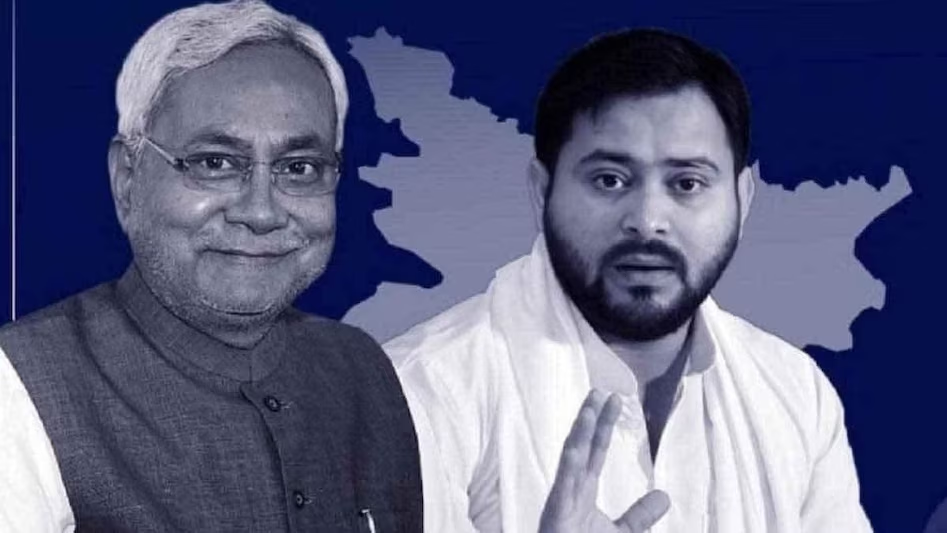For two decades, Chief Minister Nitish Kumar has held the reins of power in Bihar. With sights set on his fifth election victory, he's pulling major political moves. Amidst the electoral heat of the legislative assembly, Nitish is recalibrating his strategies, announcing free electricity and promising jobs for one crore youth. Recent announcements include increased honorarium for ASHA and Mamta workers, recognizing their vital roles in state healthcare.
On Wednesday, Nitish Kumar revealed via social media his decision to triple the honorarium of community health workers, raising ASHA workers' pay from ₹1,000 to ₹3,000 and increasing Mamta workers' incentives per birth from ₹300 to ₹600. Yet, Tejashwi Yadav is claiming credit for these promises, asserting they stem from his original initiatives. This begs the question: is there a politics of imitation at play in Bihar? Tejashwi labels Nitish's moves as his own ideas.
Honorarium Hike Sparks Credit Battle
In Bihar, Chief Minister Nitish Kumar's decision to raise the honorarium for ASHA and Mamta workers acknowledges their substantial contribution to rural health services. Since his administration began in November 2005, initiatives have significantly enhanced healthcare systems, aiming to recognize these workers' dedication.
ASHA workers play a pivotal role as community health intermediaries under the National Rural Health Mission, while Mamta workers, on contract at government hospitals, provide essential care for newborns and mothers. Following Nitish's announcement, RJD leader Tejashwi Yadav claims ownership of this initiative, citing his tenure as Bihar's health minister, wherein he had already initiated plans to boost these workers' incentives.
Nitish's Pre-Election Announcements
As Bihar's assembly election draws near, Nitish Kumar is making bold promises and decisions. His leadership has introduced pivotal measures, from infrastructure development to welfare schemes covering employment, education, and healthcare. Committed to creating over one crore jobs in five years, further pledges include establishing significant religious and cultural sites and enhancing pensions for women and seniors.
Additionally, CM Nitish has proposed raising social security pensions from ₹400 to ₹1,100 and providing economic support of ₹4,000 to ₹6,000 monthly for students pursuing internships post their schooling. The scheme to increase the pension for accredited journalists from ₹6,000 to ₹15,000 monthly, as well as promises of reservation in government jobs for women and free electricity up to 125 units, further underline his commitments.
Tejashwi Yadav's Counterclaims
On a mission to dethrone Nitish Kumar, Tejashwi Yadav has been actively campaigning for over a year, rallying Bihar's political climate with various promises. Among them is a pledge to provide a ₹1,500 monthly allowance to women, which subsequently led to Nitish enhancing the women's pension to ₹1,100, prompting Tejashwi's claims of ownership over such announcements.
Continuing to advocate for job creation, Tejashwi garners support from allies like Congress, holding Nitish accountable for lagging employment rates. With grand coalition prospects, he's assured annual job opportunities—positions Nitish counters with promises of one crore jobs over five years, echoing some of Tejashwi's past commitments.
Is Bihar Experiencing Copy-Paste Politics?
In the tug-of-war over increased honorariums for health workers, Tejashwi Yadav emphasizes that these steps are reiterations of his government initiatives, now rebranded by Nitish Kumar. He underscores that his past measures, which faced mockery, are now paradoxically mimicked by the administration. This mimicry by a now-reversing government suggests an image of Tejashwi's leadership being covertly emulated, raising questions about the originality of political vision within the current regime.
Tejashwi insists that his influence extends beyond health workers; his advocacy also encompasses wage hikes for Anganwadi workers, helpers, and cooks. With an administration seemingly apprehensive of his proposals and aspirations, Tejashwi portrays a government constrained to align with his once-dismissed visions, pointing to an underlying narrative of unoriginal politics led by mimicry rather than innovation.




